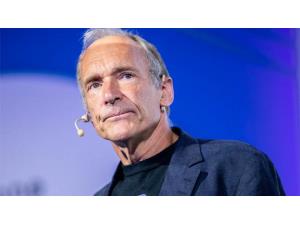Tim Berners-Lee, one of the inventors of the Internet and head of the W3C (World Wide Web Consortium), has announced a plan to rid the Network from political manipulation, fake news, privacy violations and other threats that could plunge the world into a “digital dystopia.” To do this, the British scientist invited members of the society to conclude a “Contract for the Web.”
“I think that people’s fear of what’s happening on the Internet isn’t becoming more and more without reason,” Berners-Lee said in an interview with The Guardian. “If we leave the web as it is now, a lot can get worse “We may be in a digital dystopia if we don’t change the current state of affairs.”
80 experts have worked for a year over the project of ” father of the Internet”. The document was published on behalf of the World Wide Web Foundation; it has already been supported by more than 150 organizations: from market leaders (Microsoft, Twitter, Google, Facebook) to human rights activists of the Electronic Frontier Foundation (EFF).
The Web Contract sets out nine principles — in three for governments, private companies, and ordinary citizens. Their general meaning boils down to protecting the Internet from abuse and turning it to the benefit of humanity.
For, the contract committees governments to provide Internet access to every, continuously maintain their accessibility, and respect and protect each person’s right to confidentiality and security of personal data. People should be able to refuse to process their personal information at any time, says Berners-Lee.
To create an atmosphere of trust, private companies are required to simplify privacy settings and create a tool that will allow managing personal data from a single window. When developing new products, organizations should consider the interests of people with disabilities and those who speak minority languages.
Berners-Lee encourages ordinary Internet users to act as authors of high-quality, relevant and reliable content, build strong online communities that respect the discussion, and fight to ensure that the Internet “remains an open and global public resource for people everywhere, now and in the future, “reports hitech.vesti.ru.


